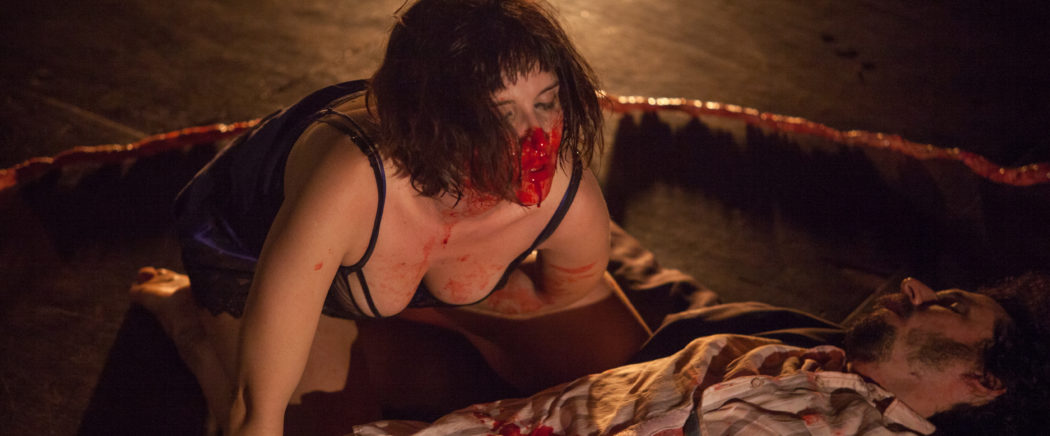Indefinite Articles

For this indefinite article, I was invited to write on the current situation facing art and artists in Brazil, which is currently the stage for a sad, rabid, and much more brutal and dangerous reenactment of the “culture wars” that mobilized the conservative movement in the US in the late 1980s and early 1990s. A tropical reenactment coached and prodded from the North by conservative US think tanks, institutes, and NGOs. Indeed, art and academic life are the first targets of any regime desiring to destroy civil rights, human rights, and the very notion of a commons. Because the violence against artists and professors working in the arts in Brazil is so high at the moment, I decided that the best would be not for me to write an article about those artists, but to invite several of them, from different generations, backgrounds, ethnicities, races, genders and gender-identities, many also teaching at State and Federal Universities, and working across Brazil in the visual arts, performance, dance, theater, and their many hybrids, to give their testimony on the situation. I leave their words here, slightly edited, translated by me, as a block of resistant text, a tapestry of insurgent voices, a resounding drum, a call to art, a call to experimentation and poetry and the right to think freely. All are identified according to their own words. To all, I am deeply grateful.
Brazil is the lab for the “new” global rising of the old extreme right (…) Artists, professors, scientists, activists all are being shamelessly attacked and criminalized. We call our international peers and networks to be sensitive to what is happening in Brazil. [Adriana Schneider Alcure, artist and professor, Federal University of Rio de Janeiro.] Suffocation. A state of perplexity before the violence of brazen vulgarity and ignorance being used as a weapon. [Marcio Abreu, dramaturge, director and artist, cisman, non-hetero, non-white. Works in several regions of Brazil and Europe.] Injustice, when it does not generate civil action, generates word. Today, Brazilian artists must write in order to register for history the physical and material damages created by the political impostures that govern the commons. [Wagner Schwartz, artist, Brazil/France.] We are in the midst of a sadly polarized and flattened context. How to activate places to encounter those who do not know each other, and where complexity may still exist? We need ambiguities and contradictions. We want deviations, crossroads, the unforeseen and the opacity of the forest/street. If the Situation wants to clean (us) to destroy (us), we will remain here to dirty (ourselves): Sociedad-Suciedad. [Marcela Levi and Lucía Russo, choreographers, Hell de Janeiro, Rio de JaNeura, Rio.] The reactionary force in Brasil tries to consolidate an inquisitional and defamatory attitude towards all dissident thought and artistic production. This creates an enormous feeling of tiredness. On the other hand, my art, my curatorial work, are my mode of being in the world. I look at the political and social situation in Brasil and see that to continue with what I propose is even more necessary! [Felipe Ribeiro, artist, professor, Federal University of Rio de Janeiro.] Paradoxically, even with all the conservative wave, I see the formation of consistent collective practices emerging from the need to not be alone, to walk together. This is a moment to strengthen groups and develop radical artistic practices. [Ricardo Basbaum, artist, researcher, professor, lives and works in Rio de Janeiro.] The situation of art and of artists in Brasil is as tragic as the situation in education, in environmental protection, in respecting gender difference, in fighting racism, in protecting human rights, in denouncing the murder of trans people, women, and the black population. We may be drawn, everything may collapse, but we must find a way to continue being alive and socially active, at all cost. [Lia Rodrigues, choreographer.] Perhaps some say we are confused, or perplexed. But I believe we are really spinning in an anxious spiral, which, I hope, will prepare us for crossing what is still to come. [Miro Spinelli, artist, scholar.] The tactics of depicting artists as “the people’s enemies” is a para-official governmental (non)policy. But there are also collective and freedom drives throughout Brasil: schools and art programs being created; black artists, LGBTQA+, women, indigenous populations, and people from the inner country, historically resistant, creating even more and better. [Elilson, visual artist and educator, Recife / São Paulo.] In the darkness, our awareness that art is a weapon, that we are collective, and above all, that we are fireflies has become more evident. And that we must go on without fear. [Luana Raitner, performer, co-founder of ERRO Grupo, white woman, mother, antifascist, lives and works in Florianópolis.] Ruled as we are by a slavocracy unconscious, to make art in Brasil today implies to mobilize weapons, recognize allies, burrow into the forbidden. There are bodies that, when moving, also move borders. Therefore they threaten. [José Fernando Peixoto de Azevedo, black, gay, son of Oxóssi and Oxum, dramaturge, professor and director at School of Dramatic Arts and professor at the Film Department, both at University of São Paulo.] In current Brasil, to be an artist is to be in a labyrinth knowing that entrances and exits cannot be found – they must be invented. Preferably collectively. [Mariah Miguel Valeiras, artist and researcher, Rio de Janeiro.] In this moment of destruction of democracy, of necropolitics, of ecological catastrophe, the articulation between “art” and “life” has gained radicality. So, hold my hand tight because I am going to tell you something important: LONG LIVE BRAZILIAN ART! Now, running around you so fast that it generates wind, let me explain you something: to make art in Brazil right now is a question of life. Do you understand? To make art is to make life. It is to offer another logic able to open spaces and pathways. [Eleonora Fabião, performance artist and professor, Federal University of Rio de Janeiro.]
André Lepecki is a Professor and Chairperson of the Department of Performance Studies, NYU.